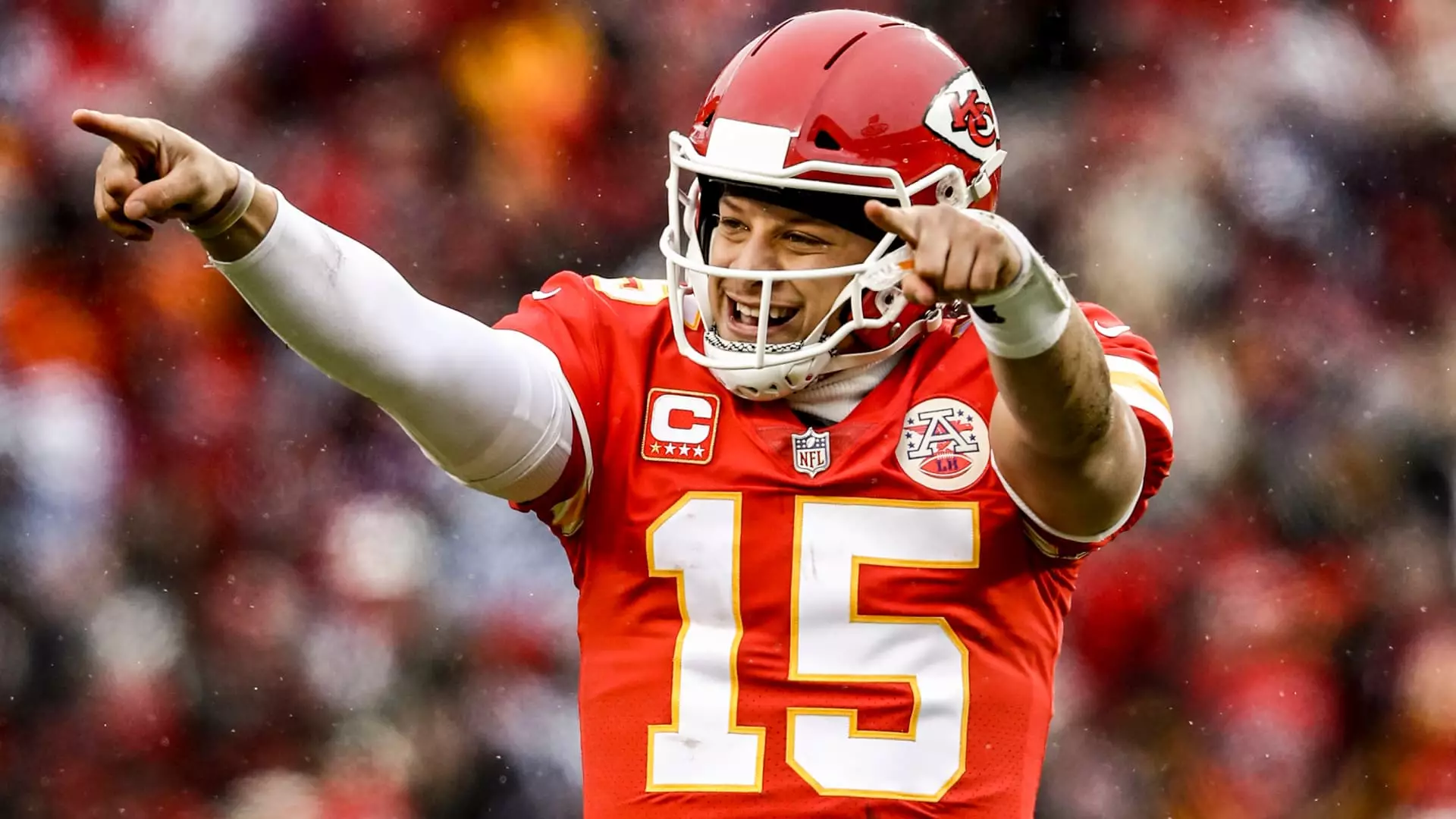In recent years, the archetype of the professional athlete has morphed from a person solely dedicated to sport into a multifaceted brand ambassador, investor, and entrepreneur. Patrick Mahomes exemplifies this shift, blending athletic brilliance with a burgeoning investment portfolio. While this might appear to signify versatility and forward-thinking, a deeper analysis suggests that much of this spectacle is driven more by ego and media manipulation than genuine business insight. The narrative of the “well-rounded superstar” silences legitimate scrutiny about whether these ventures are driven by passion or simply opportunistic vanity.
Mahomes’ involvement in Throne Sport Coffee, for example, is celebrated as an “entrepreneurial leap,” but it raises questions about the actual depth of his business acumen. Is this a calculated strategic move rooted in understanding consumer health trends, or is it a celebrity endorsement that leverages his fame to push a product that might not withstand critical market examination? His role as the “brand’s lead pitchman” looks more like a marketing stunt than a genuine commitment to the health-conscious consumer. Celebrity endorsements often serve as façades for minimal involvement, seamlessly blending marketing with genuine passion, but they can be misleading. Talent in the sport ecosystem does not inherently translate into entrepreneurship prowess.
Moreover, Mahomes’ narrative of developing a “healthy” coffee product seems more about aligning himself with current health trends than actual innovation. The supposed health benefits—less sugar, added electrolytes, B vitamins—are standard marketing points recycled across many similar products. His personal consumption—three coffees a day—may seem relatable, but it also reveals a worrisome dependence on caffeine. This personal habit is at odds with the image of being health-conscious; it’s a superficial virtue that the athlete seems to adopt more for marketing than for true wellness.
The rapid expansion of the ready-to-drink coffee market is a tempting space for celebrity investors, but one must question whether Mahomes understands the nuances of consumer preferences or is simply riding the wave of a lucrative trend. Starbucks and other giants are competing aggressively to dominate this market, which is becoming increasingly saturated. In such a climate, a celebrity-backed product needs more than just fame; it requires genuine innovation and commitment, neither of which the available evidence convincingly supports from Mahomes’ side.
Investment or Image Maintenance? The Hidden Cost of Star Power
Beyond coffee, Mahomes’ investments in sports franchises, including the Kansas City Royals, sporting teams in MLS and NWSL, and even Alpine F1, further paint a picture of strategic diversification. But beneath the surface, these moves appear more aligned with maintaining a positive public image— a charismatic quarterback with a portfolio that supports his local community and national recognition—than with a true entrepreneurial drive.
Investing in sports teams is as much about brand building as it is about the sport itself. Mahomes’ interest in owning a stake in his own future as a potential Chiefs owner is a typical move to cement his legacy, but such ambitions remain speculative and idealistic. It underscores the broader trend of athletes positioning themselves as future owners, which often hinges more on narrative appeal than on concrete plans or business expertise. The promise of “long-term” involvement becomes a subtle PR move rather than a blueprint rooted in realistic financial strategy.
The talk surrounding the Chiefs’ stadium—whether to renovate Arrowhead or build anew—illustrates the importance of legacy and community identity. Mahomes’ remarks about feeling “the history” of Arrowhead are sentimental but overlook the complexities involved in large-scale infrastructure investments and community negotiations. In reality, these decisions tend to be driven by economic factors, political pressures, and franchise interests rather than player sentiment. Mahomes’ neutral stance on the stadium debate reveals a common tendency among athletes to comment on issues superficially, without engaging with the broader implications or potential conflicts involved.
On league-wide issues like the proposed 18-game season and international expansion, Mahomes’ cautious comments offer another layer of superficiality. Here lies a clear tension: the athlete as a spokesperson balancing personal well-being with organizational demands. His concern over extra games and more travel—though seemingly responsible—also subtly aligns with the typical corporate-friendly stance that avoids alienating stakeholders. The notion that more games “are tough on the body” plays well publicly but sidesteps the profit-driven realities that make such expansions appealing to owners.
The False Promise of the Modern “Superstar” — Balancing Fame, Business, and Authenticity
Mahomes embodies a rising trend of sports figures who prioritize brand and business ventures, often at the expense of genuine expertise or long-term planning. His story, while packaged as aspirational, reveals the pitfalls of celebrity overreach. The glorification of athletes as entrepreneurs often veils a disconnection from actual business challenges, substituting media charisma for strategic depth.
In a landscape saturated with influencers and celebrity investors, true value comes from authentic innovation and sustainable growth—neither of which are guaranteed by mere fame. Mahomes’ ventures, whether in coffee or team ownership, risk being overly optimistic gestures that serve his personal brand more than the communities they supposedly benefit. Real entrepreneurship requires more than endorsement deals and investments; it demands understanding the market, long-term vision, and the humility to learn from failures.
The athlete-as-entrepreneur model also raises a troubling question about priorities. Does the focus on personal brand expansion diminish the integrity of sports as a platform for genuine community engagement? Or does it become an extension of the celebrity’s identity, driven more by marketability than meaningful impact? Mahomes’ case, like many others, seems to lean toward the latter—an image-building exercise disguised as entrepreneurial ambition.
In the end, the narrative constructed around Mahomes’ off-field pursuits resembles a carefully crafted spectacle, designed to elevate his status far beyond the gridiron. As fans and critics, we should approach it with a critical eye, recognizing the thin line between savvy business moves and superficial branding. In the world of modern sports, star power is often a mirage—an illusion that masks the complex realities of true entrepreneurship, authentic community investment, and genuine innovation.

